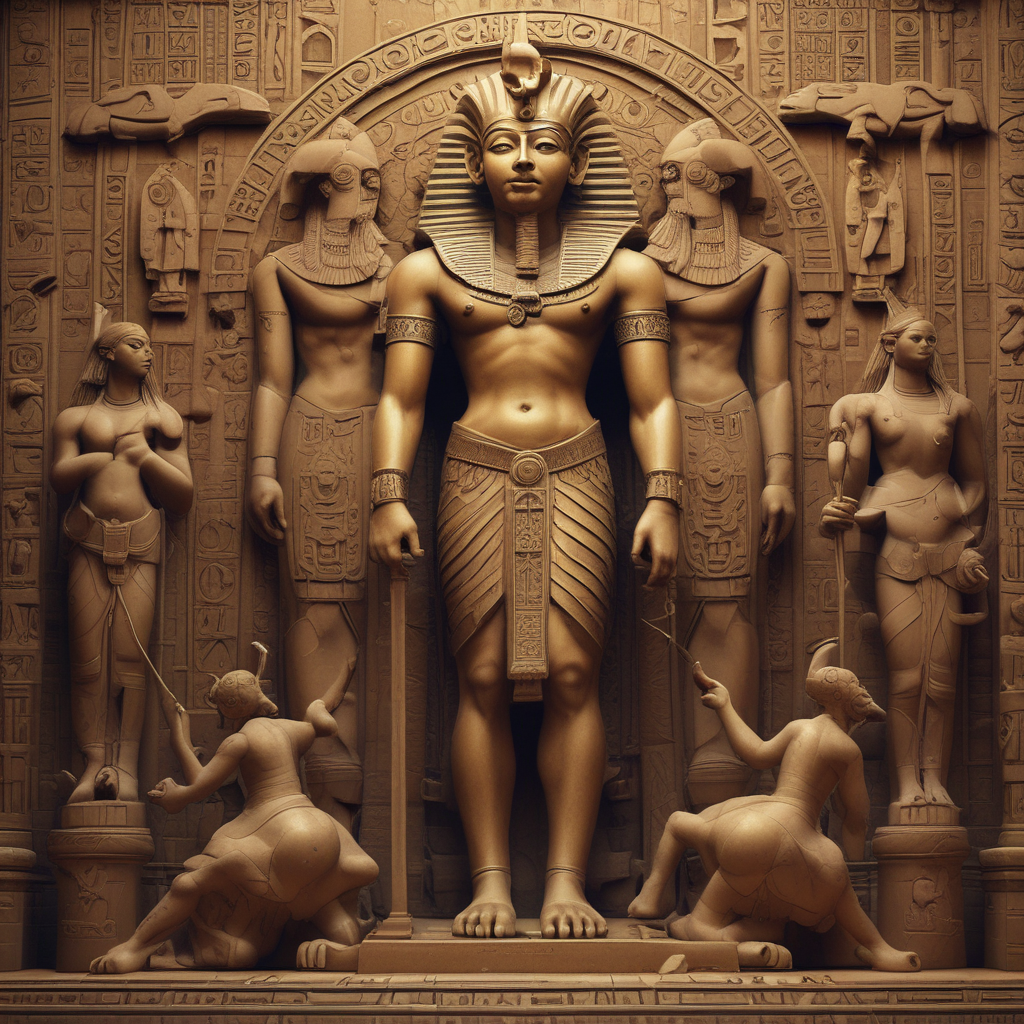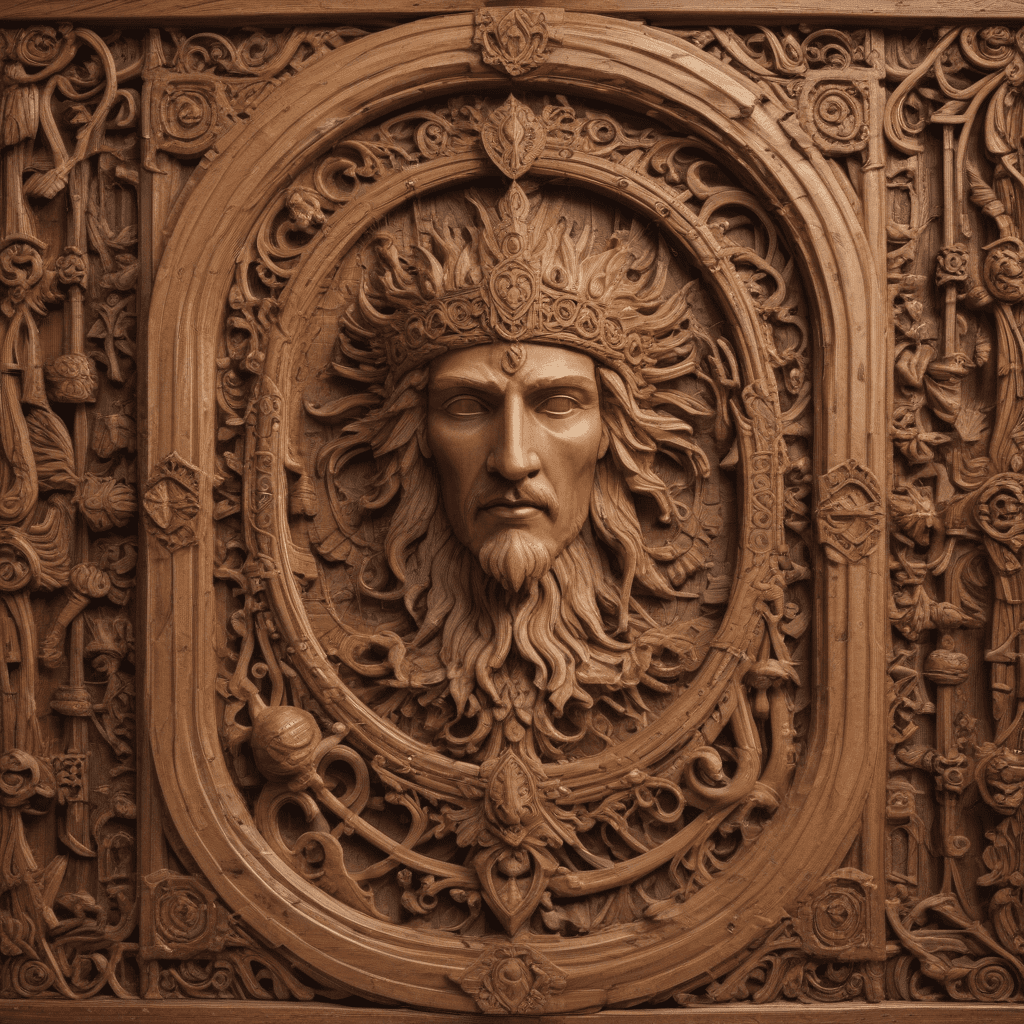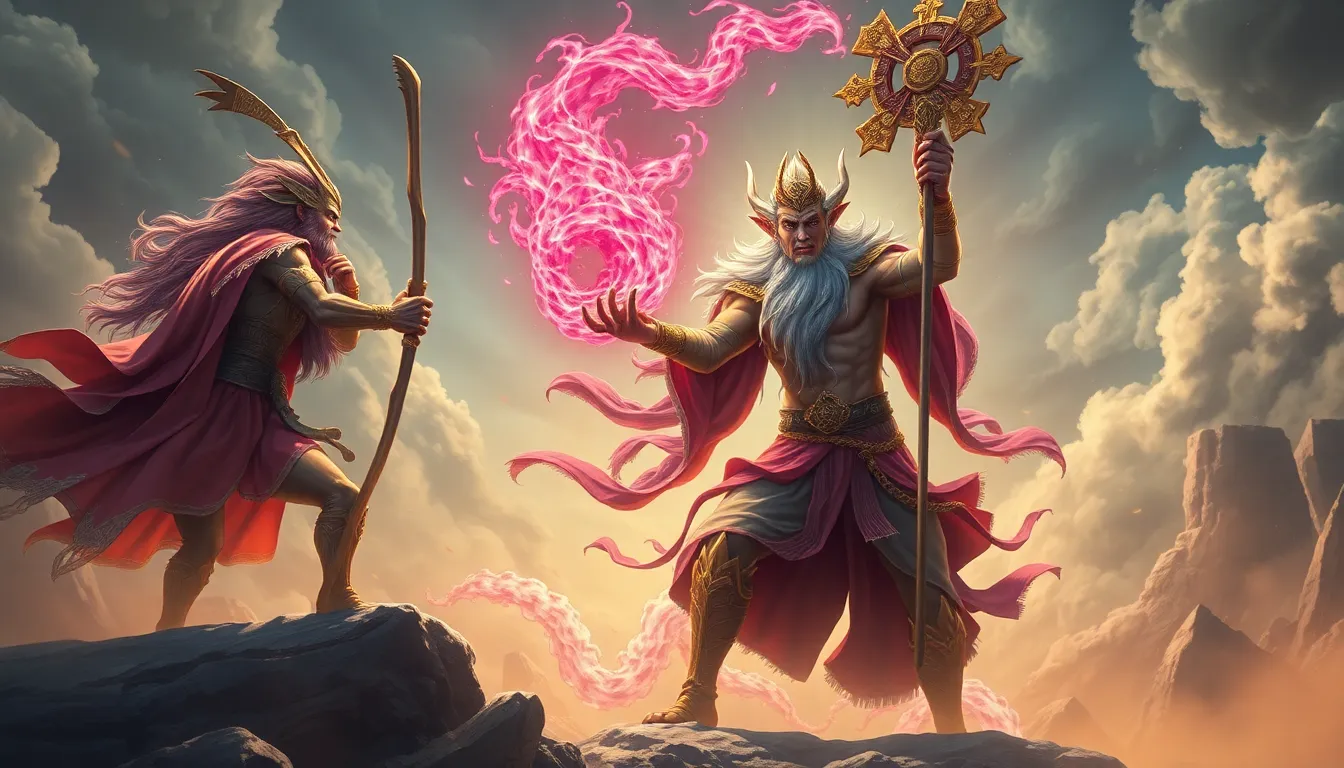The Myth of the God Hapi in Egyptian Mythology
Introduction to Hapi
In Egyptian mythology, Hapi is a crucial deity closely associated with the annual flooding of the Nile River. Represented as an androgynous figure with breasts and a protruding belly symbolizing fertility and abundance, Hapi was worshipped for the life-giving waters brought by the Nile.
Hapi’s Role and Importance
As the god of the Nile flooding, Hapi was honored for the inundation that fertilized the land, allowing crops to grow abundantly in ancient Egypt. This annual event was considered vital for the prosperity and sustenance of the Egyptian people, linking Hapi directly to their agricultural practices and economic well-being.
Depiction and Symbolism of Hapi
In art and hieroglyphics, Hapi is often shown with papyrus plants growing from their head or holding offerings of produce, symbolizing the fertility of the Nile Valley. The dual nature of Hapi’s physical attributes – male and female characteristics – highlights not just procreation but the balance of forces necessary for creation and life.
Worship and Rituals
Ancient Egyptians celebrated Hapi through rituals and ceremonies during the flooding season. Offerings were made to ensure a bountiful harvest and to express gratitude for the life-sustaining waters of the Nile. Priests dedicated temples to Hapi and conducted ceremonies to honor this benevolent deity.
In conclusion, Hapi’s significance in Egyptian mythology as the god of the Nile flooding underscores the importance of natural phenomena in ancient cultures. The reverence shown to Hapi reveals the deep connection Egyptian society had with the cycles of nature and their understanding of the principles of fertility and abundance.

Frequently Asked Questions About the Myth of the God Hapi in Egyptian Mythology
Who is Hapi in Egyptian mythology?
Hapi is the ancient Egyptian god of the annual flooding of the Nile River, associated with fertility and abundance. Hapi was considered a beneficent deity, bringing life-giving waters to the land.
What role did Hapi play in Egyptian beliefs?
Hapi was crucial in Egyptian mythology as the provider of sustenance through the Nile floods. Egyptians believed that Hapi’s actions ensured the prosperity and fertility of the land, making him a revered and essential deity.
How was Hapi depicted in Egyptian art?
Hapi was often portrayed as a masculine figure with full breasts and a prominent belly to symbolize abundance. He was depicted as a mummified man wearing a headdress of water plants to represent the fertile marshes brought by the Nile floods.
Was Hapi associated with any other Egyptian gods?
Hapi was closely linked with Osiris, the god of the afterlife, due to the connection between the Nile’s flooding and the rejuvenation of the land. Hapi’s role in sustaining life through water aligned with Osiris’ role in the cycle of life, death, and rebirth.
What symbolism did Hapi represent in Egyptian culture?
Hapi symbolized the Nile’s inundation



